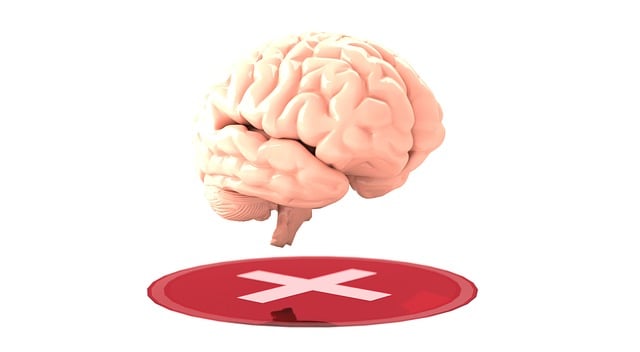Cultural sensitivity is crucial in mental healthcare, especially within specialized areas like Castle Rock Relationship Issues Therapy (CRRIT). CRRIT emphasizes understanding and respecting clients' cultural differences, languages, traditions, and community dynamics to provide personalized care. This involves cross-cultural communication skills, mastering clients' languages, and integrating cultural knowledge into therapeutic strategies. The Castle Rock Model offers a structured approach, prioritizing strong therapist-client relationships based on understanding and trust. By creating safe spaces and practicing active listening, therapists address cultural barriers, reduce stigma, and incorporate traditional healing practices to facilitate emotional healing tailored to individual needs. This culturally sensitive approach enhances therapy outcomes, improves mental well-being, and strengthens communities, making CRRIT a pioneering force in accessible and effective mental healthcare.
In today’s diverse society, cultural sensitivity is paramount in mental healthcare. Understanding and respecting different cultural beliefs and practices can significantly enhance patient outcomes, especially when addressing sensitive issues like Castle Rock relationship problems. This article explores the importance of cultural sensitivity, providing insights into frameworks like the Castle Rock Model for effective cross-cultural communication. We’ll also delve into strategies to identify and overcome cultural barriers in therapy sessions and discuss how incorporating cultural competence enhances treatment plans.
- Understanding Cultural Sensitivity: Why It Matters in Mental Healthcare
- The Castle Rock Model: A Framework for Cross-Cultural Communication
- Identifying and Addressing Cultural Barriers in Therapy Sessions
- Incorporating Cultural Competence into Treatment Plans
- Enhancing Patient Outcomes: Success Stories of Culturally Sensitive Practices
Understanding Cultural Sensitivity: Why It Matters in Mental Healthcare

Cultural sensitivity is a cornerstone in mental healthcare practice, offering a nuanced approach to treating individuals from diverse backgrounds. Understanding and respecting cultural differences is paramount as it ensures that every client receives care tailored to their unique needs and experiences. In Castle Rock Relationship Issues Therapy, for instance, therapists must be adept at recognizing the impact of cultural contexts on mental well-being. This involves not only acknowledging the individual’s primary language but also their traditions, beliefs, and community dynamics.
Integrating knowledge about various cultures equips mental health professionals with effective communication strategies and a deeper comprehension of potential barriers to treatment. It enables them to adapt evidence-based practices, such as stress reduction methods rooted in mind over matter principles, while incorporating cultural elements that foster trust and engagement. Furthermore, mental health education programs design should prioritize cultural sensitivity to ensure inclusive environments that promote healing and positive outcomes for all clients, regardless of their background.
The Castle Rock Model: A Framework for Cross-Cultural Communication

The Castle Rock Model offers a powerful framework for cross-cultural communication in mental healthcare. This model emphasizes building strong relationships based on understanding and respect, mirroring the foundational stone of a castle. By fostering a safe and supportive environment, therapists can effectively navigate Castle Rock Relationship Issues Therapy, addressing cultural barriers and promoting healing.
This approach encourages therapists to engage in self-awareness exercises to recognize their own biases and assumptions, ensuring they provide culturally sensitive care. Through open dialogue and active listening, clients feel heard and validated, which is crucial for managing mood disorders and anxiety. The Castle Rock Model ultimately facilitates better connection, empowering individuals to overcome challenges and achieve anxiety relief while improving overall mood management.
Identifying and Addressing Cultural Barriers in Therapy Sessions

Identifying cultural barriers is a crucial step in providing effective therapy, especially when addressing sensitive Castle Rock relationship issues. Therapists must be attuned to the diverse backgrounds and experiences their clients bring into the session. Cultural sensitivity involves recognizing how one’s own biases and assumptions may impact the therapeutic process. By acknowledging these potential roadblocks, therapists can create a safe and inclusive environment for all.
Addressing cultural barriers requires active listening and open communication. Therapists should encourage clients to share their perspectives and beliefs, allowing them to understand the unique context of their lives. This might involve discussing specific challenges related to mental illness stigma reduction efforts or exploring traditional healing practices that complement modern therapy. Incorporating these insights into the therapeutic approach can enhance emotional healing processes, ensuring that care is tailored to meet individual needs.
Incorporating Cultural Competence into Treatment Plans

Incorporating cultural competence into treatment plans is a vital step toward providing effective and respectful mental healthcare, especially when addressing Castle Rock Relationship Issues Therapy. Understanding the patient’s cultural background, values, and beliefs allows therapists to tailor interventions that resonate with their unique experiences. This approach fosters trust and engagement, ensuring that the therapeutic process aligns with the individual’s identity and community norms. For instance, incorporating elements of positive thinking and mood management within a culturally sensitive framework can be incredibly powerful.
By integrating compassion cultivation practices, therapists can create a safe space where patients feel validated and empowered to explore their emotions. This cultural sensitivity not only enhances the therapeutic outcome but also promotes long-lasting, meaningful changes. It encourages patients to adopt healthy coping mechanisms that are consistent with their personal values, ultimately leading to improved mental well-being and stronger relationships, both personally and within their communities.
Enhancing Patient Outcomes: Success Stories of Culturally Sensitive Practices

In the realm of mental healthcare, cultural sensitivity is a game-changer that can significantly enhance patient outcomes. Castle Rock Relationship Issues Therapy, for instance, has seen remarkable success stories through adopting culturally sensitive practices. By incorporating understanding and appreciation of diverse cultural backgrounds, therapists create safe spaces where patients feel heard, respected, and understood. This fosters trust, encouraging open communication about personal struggles, including unique cultural perspectives on stress reduction methods and trauma support services.
These culturally sensitive approaches have led to improved therapeutic outcomes, as evidenced by numerous positive transformations in patient lives. From helping individuals navigate complex interpersonal dynamics to providing tailored mental health awareness programs that resonate with diverse communities, Castle Rock Relationship Issues Therapy has become a beacon of hope for many. By recognizing and respecting cultural differences, they offer personalized care that goes beyond the conventional, ultimately revolutionizing mental healthcare accessibility and effectiveness.
Cultural sensitivity is a cornerstone of effective mental healthcare, fostering inclusive environments that address diverse patient needs. The Castle Rock Model offers a powerful framework for cross-cultural communication, guiding therapists in understanding and respecting unique cultural perspectives. By identifying and overcoming barriers, professionals can incorporate cultural competence into treatment plans, leading to enhanced patient outcomes as evidenced by successful practices globally. Embracing this approach, especially when navigating complex Castle Rock Relationship Issues Therapy, ensures that care remains sensitive, relevant, and ultimately transformative for every individual.














